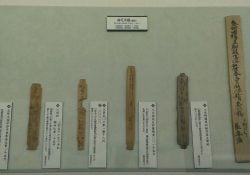The Japanese have an extensive collection of habits and customs that are interesting to learn. and in this article we will look at some of those customs. We will cite random customs, manners, rules and habits. Unfortunately there is no way to categorize this article, we will only mention the most common, and important facts that you should know.
See also how "How the Asian Culture Can Create a Happy Home",.
We also recommend reading:
- What Does Maji Mean in Japanese?
- Watashi, boku, ore - How to say "I" in Japanese?
- List of Japanese male names with meanings
Índice de Conteúdo
It might be rude to put your own drink
Ao invés de você colocar sua bebida ou alguém colocar a bebida a todos, eventualmente alguém ira notar e encher o seu copo. Basta lembrar ser um pouco rude você encher seu próprio copo de bebida;
When drinking with friends, expect Kanpai
Beber antes de dizerem Kanpai, um tipo de brindar entre amigos. É considerado rude e indisciplinável. Geralmente isso acontece ao beberem Sake e Cerveja numa reunião, comemoração de amigos ou colegas de trabalho;
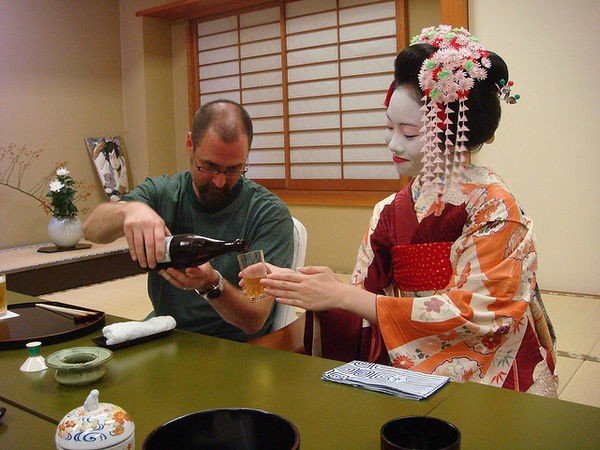
Holding hands when doing business
It can be common to hold hands, when closing deals, it is not necessary to bow if you have held someone's hand;
The article is still halfway through, but we recommend also reading:
Yukata
Essa vestimenta, além de ser popular em festivais de verão, costuma ser usada como pijama, principalmente em hotéis e onsen. Em alguns casos você pode tomar café usando o yukata. Além disso, o Yukata feminino deve ser bem preso, vai que você esteja sem roupa de baixa e ele abre..;
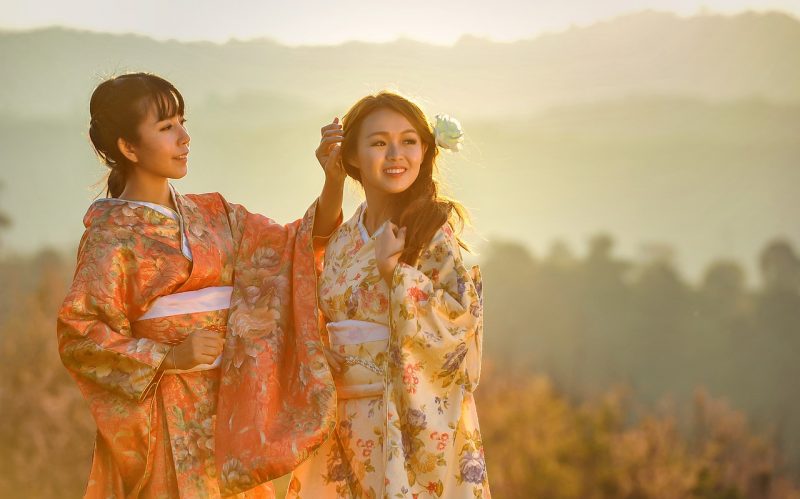
Flip flops
Algumas casas de banho ou outros locais, oferecem chinelos próprios para acessar certos locais, só se lembre de não sair com eles do local;
Geralmente chinelos não devem ser usados em pisos de tatame. No ryokan muitas vezes os chinelos são usados apenas nos corredores;
Read also: Zori - Hawaiian or Japanese Sandals?
Garbage and Recycling
There are many rules on how to pack garbage and collection for recycling that varies by municipality. So you must pay close attention to details so as not to do it wrong;
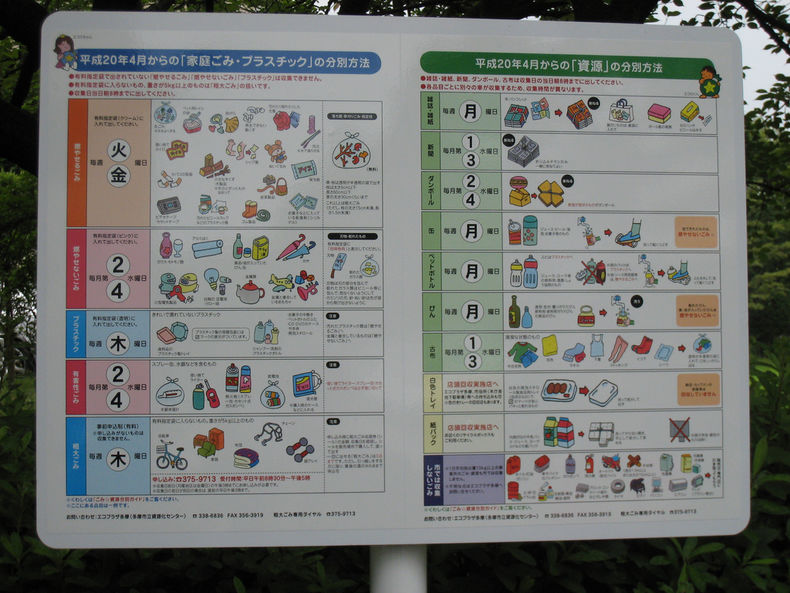
Play with the Hashi
Use os Hashi somente para comer, é assim que os japoneses fazem, além de envolver higiene os Hashi representam muitas tradições e culturas, brincar com eles pode ser desrespeitoso;
Read also: Hashi – Tips and Rules on how to use and hold chopsticks
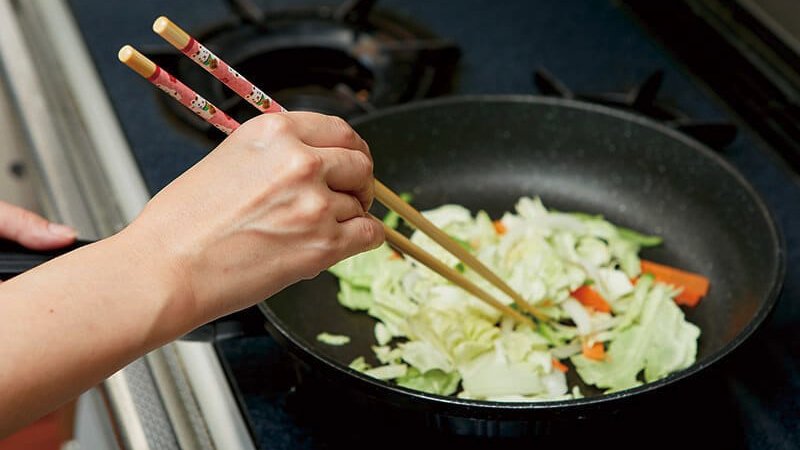
Point the finger
É considerado algo ameaçador no Japão, ao invés de apontar os dedos os japoneses costumam apontar uma direção com a mão aberta. Instruções verbais sem gestos também são muito comuns;
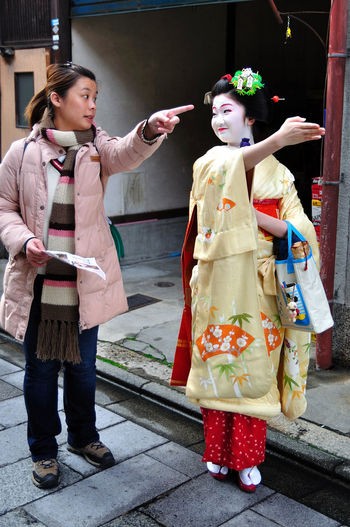
take a dirty bath
Both in public baths, hotels and at home you will come across a bathtub. In Japan, bathing is seen as a relaxing leisure activity rather than an act of cleansing the body. The Japanese usually wash themselves in the shower before getting into the bathtub, and avoid any soap residue in the bathtub. (or ofuro).
Towels in the thermal baths
People bring small towels with them to the bathing areas. These are used to clean the body before entering the bath. They are also a tool of modesty to hide small parts of their body when standing. The towels cannot get wet. So it is common to use them on the head.
We recommend reading: Onsen - Natural Hot Springs of Japan
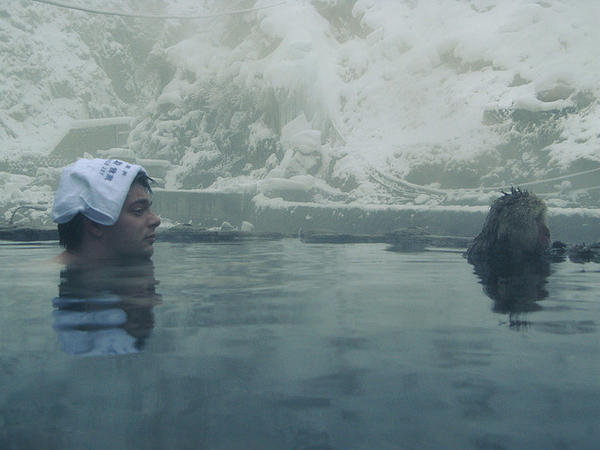
Oshibori
Muitos restaurantes oferecem uma toalha úmida chamada de Oshibori, que serve para limpar levemente as mãos antes das refeições, então deve evitar usar no rosto ou usar como um guardanapo, é considerado algo rude;
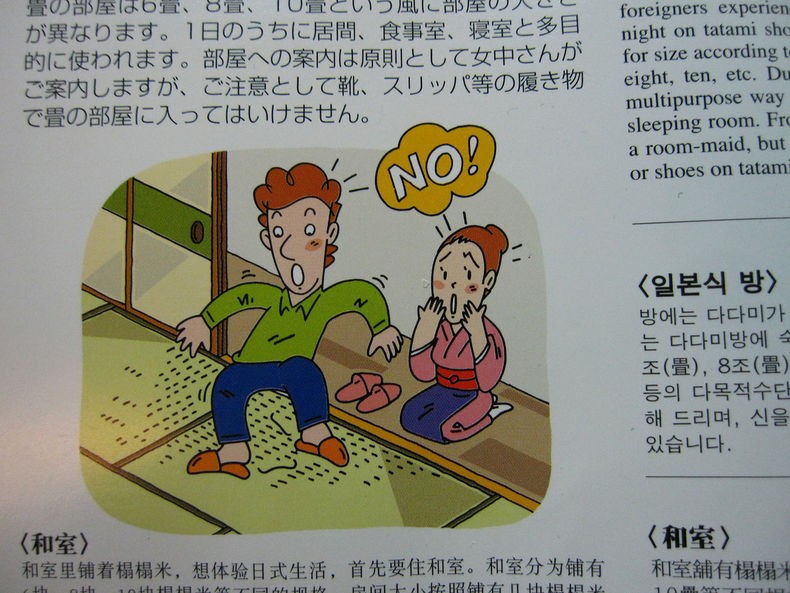
Blow your nose
Assoar o nariz em público é considerado rude. As pessoas geralmente vão para o banheiro para soprar seu nariz. Já fungar é geralmente normal;
Touches and Hugs
Sabemos que não é comum abraços, tapinha nas costas entre os japoneses. até mesmo amantes tendem a evitar a intimidade física em lugares públicos. Sendo assim, evite abraçar ou pegar na mão de pessoas desconhecidas, exceto se ela esteja com uma plaquinha escrito Abraços Grátis;

smoking
Walking and smoking is seen as dangerous and reckless for a variety of reasons, with the biggest being the idea that you could accidentally burn someone on a crowded street.
Itadakimasu and Gochisosama deshita
At every meal you must say Itadakimasu before eating and Gochisosama at the end of the meal, they are important customs that involve several things and meanings.
Both words have several translations such as thank you for the food, I humbly accept the food, thank God for the food, it was a good meal.
This custom, despite having a little spirituality involved, it is a cultural thing performed by everyone regardless of having a belief or not.
Read also: Itadakimasu and Gochisousama - What is the real meaning?
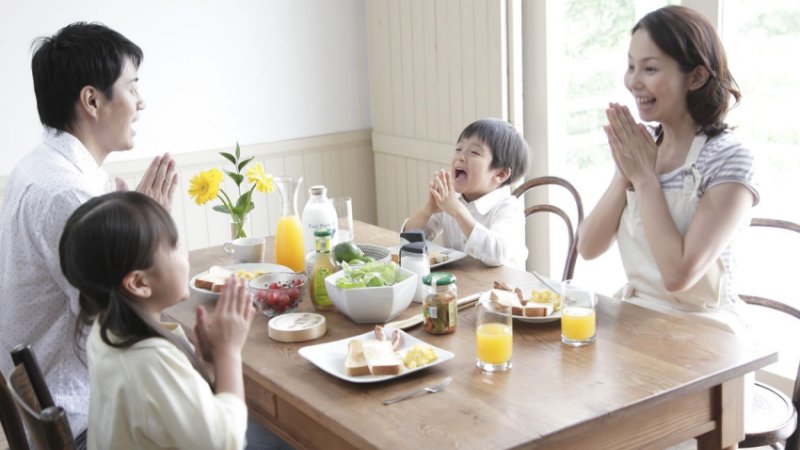
names
You should call the person by their last name and use the more common respect suffix “-san”. Unless you are very close friends with a person, you can call him by his first name;
We recommend reading: List of Japanese surnames 200+ Origin and Meanings
soups
Sopas se comem com colher, logico. Mas não há problema em pegar uma tigela de sopa para beber diretamente dela. Isso é bastante comum;

Well, these are just some of the customs and habits that surrounds Japan, in fact, there are thousands of rules and customs related to each item mentioned in this article, such as eating with chopsticks, or in the bathroom. This is just another explanatory article, because there are thousands of cultural differences and customs that can be found in various articles on this site.




